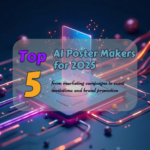How to Pick AI Marketing Tools That Save You 10+ Hours Weekly

AI marketing tools are revolutionizing how businesses approach their marketing strategies. According to a 2018 McKinsey analysis of more than 400 advanced use cases, marketing was the domain where AI would contribute the greatest value. I’ve seen firsthand how these tools can transform workflows and save precious hours each week.
In fact, artificial intelligence in marketing is no longer just a futuristic concept. As of 2024, AI adoption across the global business landscape has increased to 72%, with McKinsey estimating that generative AI might add as much as USD 4.4 trillion to the global economy annually. What’s even more striking is that 97% of business leaders agree that AI enables companies to analyze social media data more effectively and improve their overall marketing efforts.
I’ve found that the growing popularity of AI for marketing isn’t surprising when you consider that 50% of marketing leaders believe AI will have a ‘big impact’ on productivity. Additionally, 88% of marketers say they need to increase the use of automation and AI to meet customer expectations and stay competitive.
In this guide, I’ll walk you through how to select the right AI marketing tools that can save you 10+ hours every week. We’ll explore what makes these tools effective, examine eight specific options, and discover how to integrate them seamlessly into your existing workflow.
What is AI marketing and why it matters in 2025
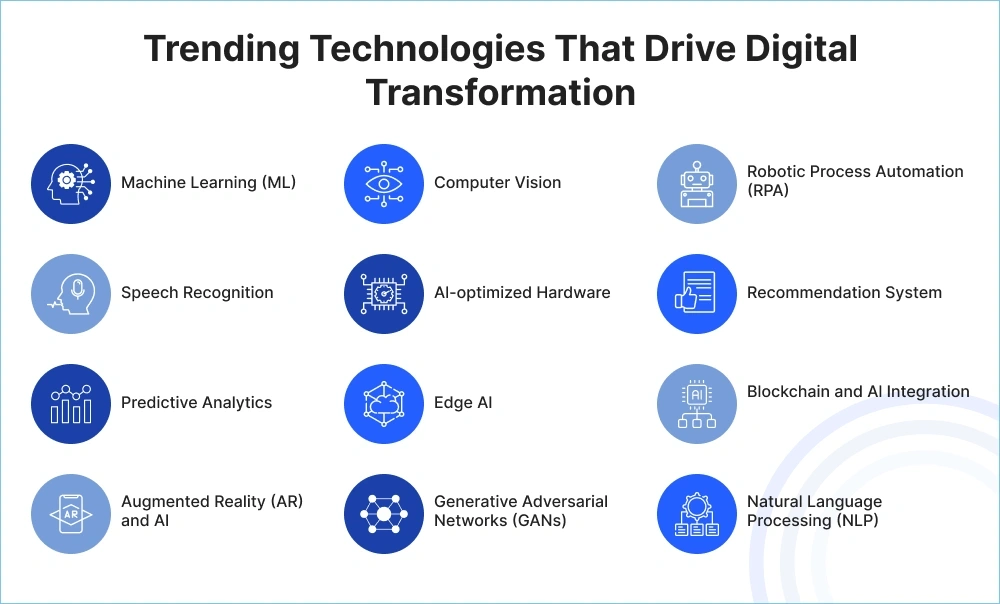
(Image Source: Edstellar)
The foundation of modern marketing is rapidly shifting toward intelligent systems that enhance human capabilities. Artificial intelligence in marketing refers to the process of leveraging AI methods and tools such as data models, algorithms, and machine learning to produce customer insights that marketers can use to optimize spending, customize content, and personalize the customer journey.
Understanding AI in digital marketing
To begin with, AI marketing combines artificial intelligence technologies with customer and brand experience data to provide highly precise insights into your customer journey and market trends. This includes technologies like natural language processing (NLP), machine learning (ML), and sentiment analysis that guide decision-making. Common applications include chatbots, image recognition, personal assistants, recommendation engines, targeted advertising, and dynamic pricing on ecommerce sites.
What makes AI marketing particularly powerful is its ability to process vast amounts of data quickly. Unlike traditional analysis, AI analytics can handle and sort larger datasets in real time, identifying complex patterns and correlations that human marketers might miss. Furthermore, these systems continuously learn from every interaction across the customer journey, improving future campaigns based on these insights.
How AI and marketing work together
There are two primary types of AI that work together in marketing: predictive AI and generative AI. Predictive AI analyzes patterns in data to anticipate outcomes – for instance, which products a customer might purchase based on past behavior. Consequently, this helps marketers with audience segmentation, lead scoring, and campaign optimization.
Generative AI, on the other hand, creates new content by learning patterns from training data. This includes writing copy, designing images, or producing other marketing materials. Together, these technologies enable marketers to:
- Increase retention and loyalty through personalized experiences
- Capture higher ROI with effective targeting
- Reduce handling time for customer inquiries
- Improve productivity across marketing workflows
In 2025, we’re seeing AI evolve beyond simple applications like chatbots and content generation toward intelligent agents that can automate entire marketing journeys. These AI-powered systems can track attribution modeling, performance insights, and customer behaviors to optimize strategies for improved ROI.
Why marketers are adopting AI tools now
The rapid adoption of AI marketing tools in 2025 is driven by impressive statistics and tangible benefits. Nearly two-thirds (65%) of senior executives identify leveraging AI and predictive analytics as primary contributors to growth in 2025. Similarly, 78% of marketing teams started using generative AI in 2024, with 78% reporting it’s having a positive impact.
Under those circumstances, it’s no surprise that AI in marketing is projected to reach a market size of USD 217.33 billion by 2034. Specifically, marketers are turning to AI for multiple use cases:
- 51% use AI tools to optimize content for campaigns and SEO
- 50% create content using artificial intelligence
- 45% use AI for brainstorming content concepts
- 43% automate repetitive tasks with AI software
Perhaps most importantly, 73% of marketers say AI plays a key role in crafting personalized customer experiences. With 61% of senior executives agreeing that boosting customer engagement with personalized experiences will be critical to achieving growth, this capability is becoming essential rather than optional.
The shift toward AI adoption is also practical. Marketers who once reacted to consumer behavior can now predict it and create personalized campaigns. However, the greatest value might be in time savings—reducing hours spent on repetitive, data-driven tasks like content marketing, email, social media, or customer relationship management.
How AI tools save time across marketing workflows
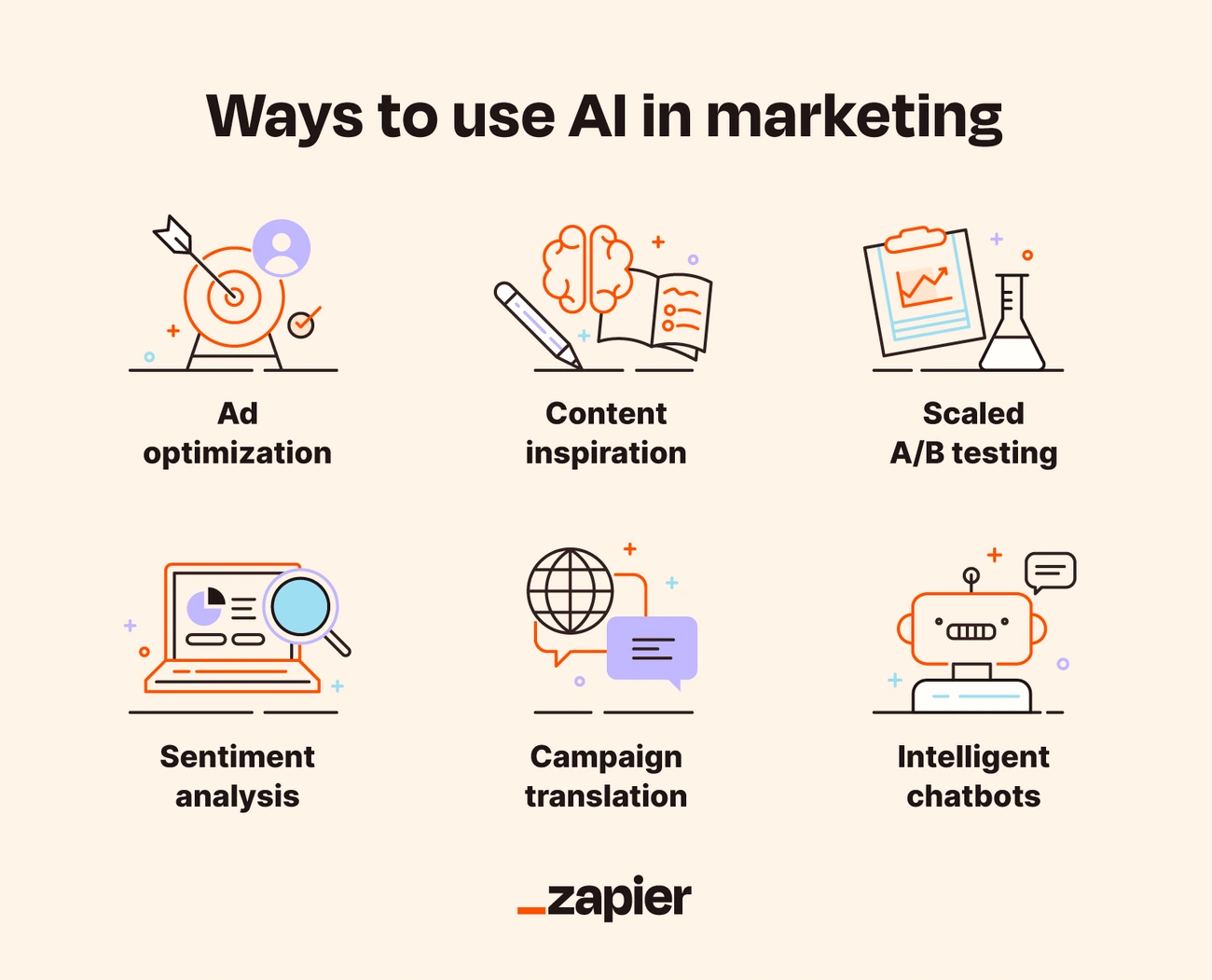
(Image Source: Nekoh Digital)
Time is perhaps a marketer’s most precious resource. The emergence of AI marketing tools has transformed how teams manage their workflows, offering unprecedented efficiency gains. Marketing teams using AI automation can reallocate up to 30% of their time toward strategic initiatives and creative tasks, effectively giving back 11 hours weekly or 26 extra working days annually.
Automating repetitive tasks
First and foremost, AI excels at handling routine operations that previously consumed countless hours. Tasks that once took days—like campaign reporting, performance monitoring, and complex data modeling—can now be automated and executed in minutes. Notably, AI-powered marketing automation streamlines processes by:
- Automating email campaigns with personalized content, subject lines, and optimal send times
- Scheduling social media posts and multi-step customer journeys
- Managing data cleansing and campaign brief creation
Meanwhile, these platforms don’t just execute tasks—they continuously learn and improve. AI systems can track campaign effectiveness in real-time, providing immediate feedback on metrics like customer engagement and conversion rates. For example, AI-driven tools can automatically detect naming anomalies within marketing campaigns and correct them without human intervention.
Speeding up content creation
Content development represents another significant time investment for marketers. With AI tools, campaigns can reach the market up to 75% faster. Many social media managers operate as one-person teams, making AI assistance for content creation crucial.
Coupled with traditional methods, AI can generate high-quality content drafts in minutes rather than hours. Tools like Buffer’s AI Assistant can whip up new posts, repurpose old ones, and generate ideas with minimal input. This capability extends beyond simple social posts—AI can create complete, well-structured blog drafts, repurpose content across multiple channels, and optimize it for search engines simultaneously.
Improving decision-making with data
Above all, AI marketing tools dramatically enhance analytical capabilities. They process vast amounts of data at unprecedented speeds, identifying patterns and trends human analysts might miss. This translates into faster, more informed decision-making that keeps businesses competitive.
Take A/B testing as an illustration. Traditional methods required running different ad versions and comparing performance over set periods. With AI, multiple variations are analyzed in real-time, immediately identifying effective elements and suggesting adjustments. One internal tool developed for landing page optimization can run continuous tests, automatically identify customer segments, and build relevant page versions dynamically.
Ultimately, this predictive capability enables marketers to anticipate customer behavior rather than simply react to it. By forecasting future trends and behaviors, marketers can proactively adjust their strategies before problems arise.
9 Best AI marketing tools to save hours weekly
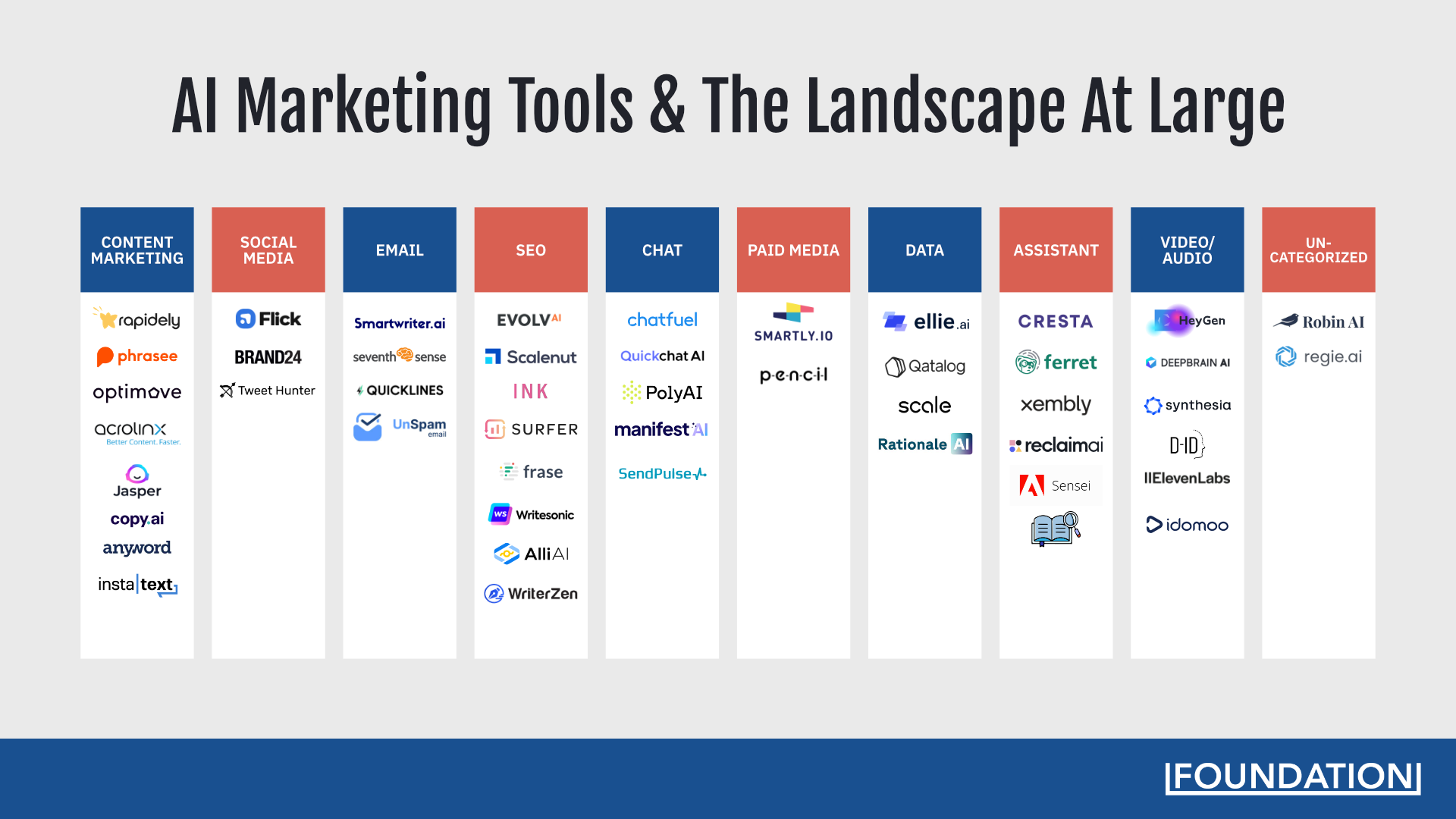
(Image Source: Foundation Marketing)
Finding the right AI marketing tools can transform your productivity and slash hours from your weekly workload. Each of these eight solutions addresses specific marketing challenges while delivering substantial time savings.
- MolyPix.AI – for stunning designs
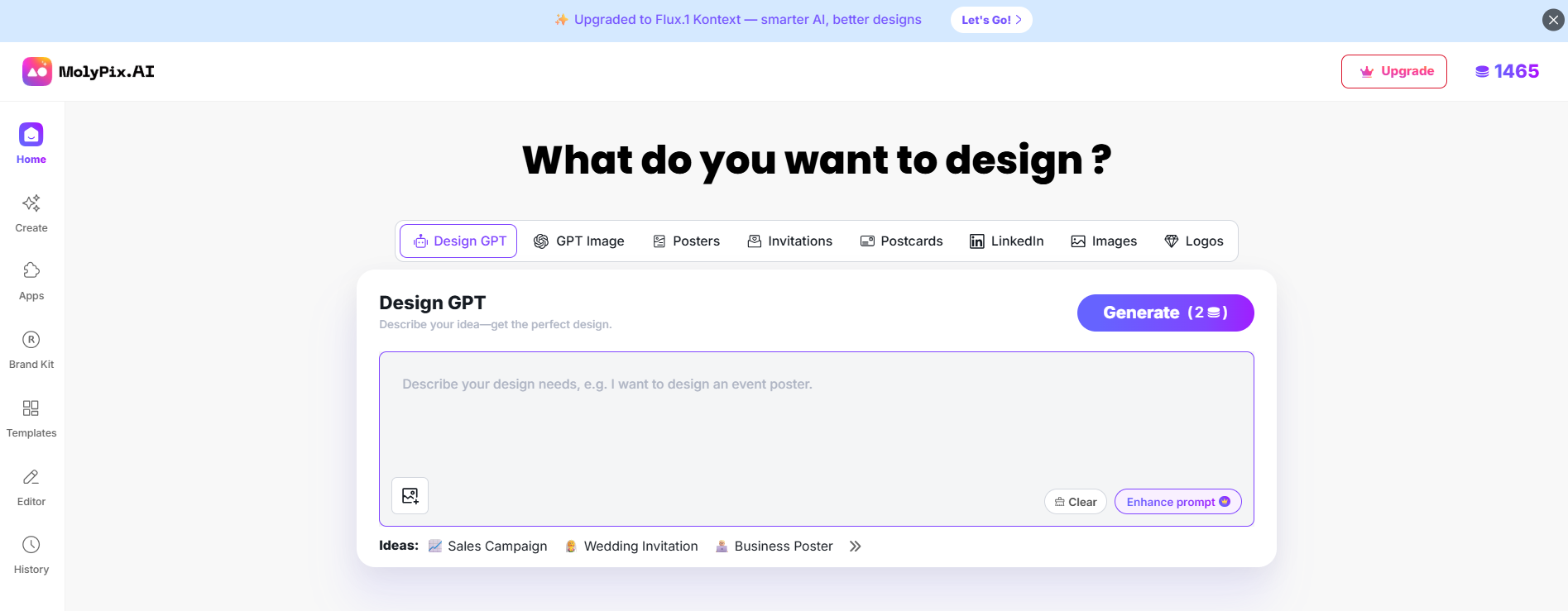
MolyPix.AI empowers anyone to create stunning designs effortlessly, all from a single prompt—no design skills required. This intuitive AI design platform lets you generate beautiful, professional visuals in seconds, then easily fine-tune every detail. Unlike most AI image generation tools, MolyPix.AI makes each design fully editable: you can select and modify specific parts of your design right within the built-in editor, without ever starting over. With recent integrations like ChatGPT Image (4o) and Flux.1 Kontext, editing becomes even simpler and more precise, powered by intelligent LLMs that truly understand your creative context. With MolyPix.AI, design is faster, smarter, and more accessible than ever before.
- Jasper AI – for fast content writing
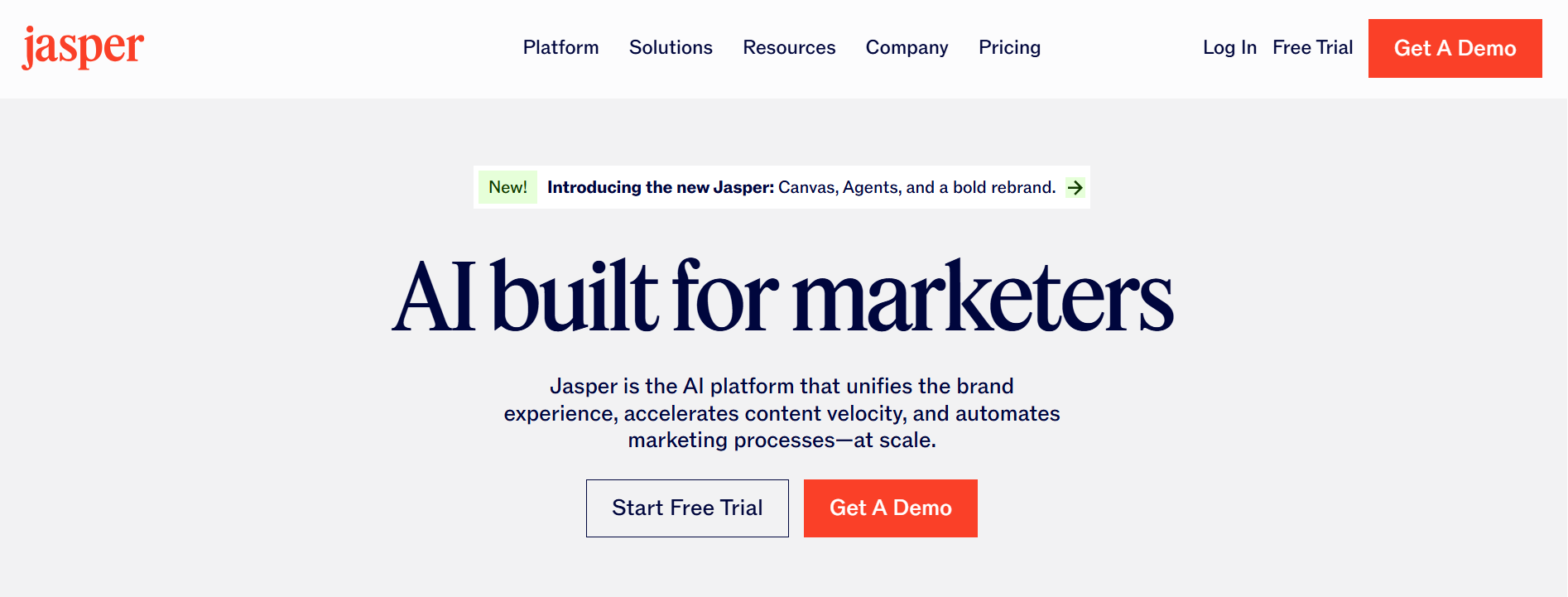
Jasper helps you create original content faster and with higher quality. This AI writing assistant can generate everything from blog posts to email subject lines and social media copy. With Jasper, content creation speeds up dramatically—producing high-quality, unique content up to 10 times faster than when writing alone. The platform supports over 25 languages and offers features like Brand Voice that ensure consistent brand identity across all content.
- Surfer SEO – for content optimization
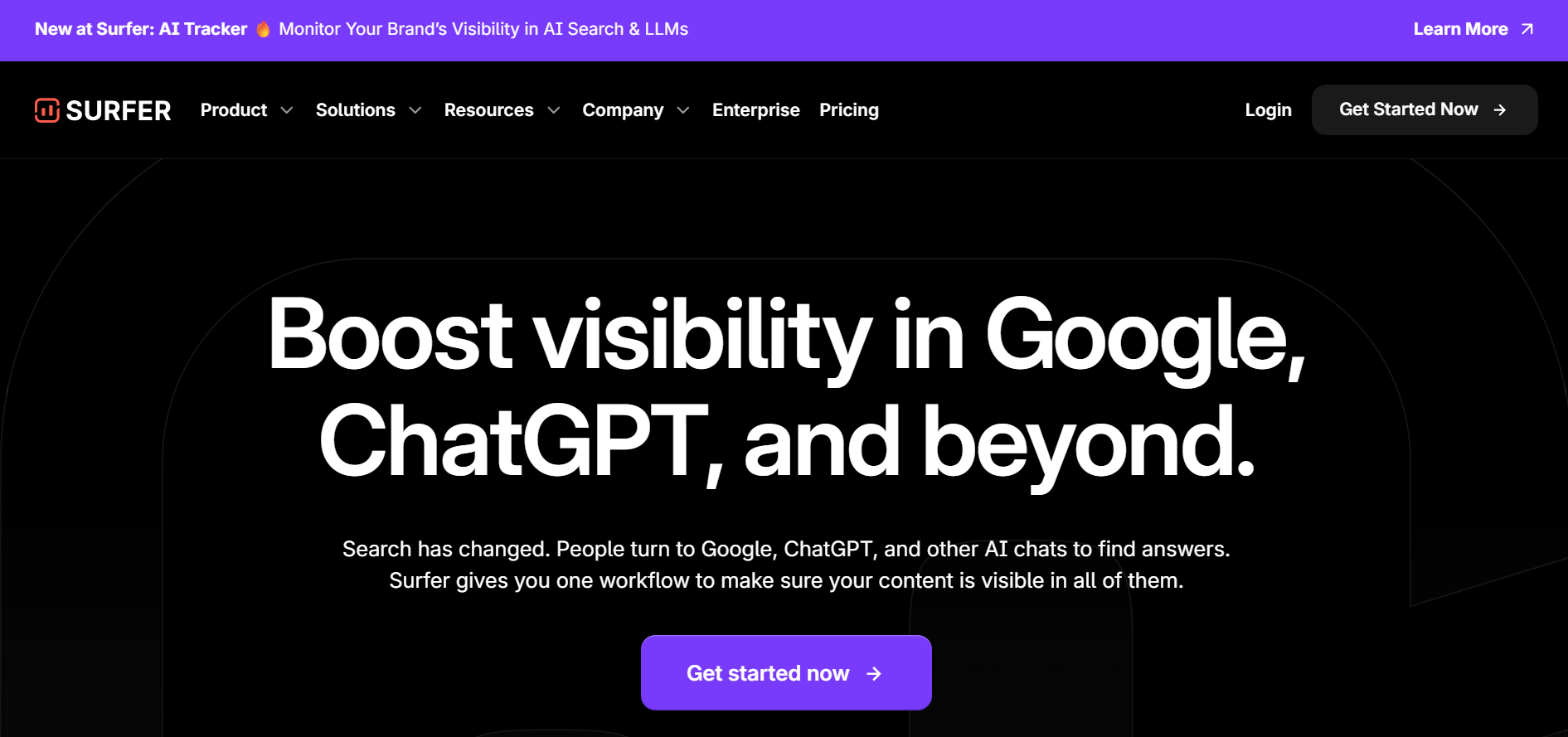
Surfer SEO analyzes top-performing pages for your target keywords and provides data-driven recommendations to optimize your content. The platform identifies content gaps, adds missing context, and fine-tunes your writing around topics that matter to both Google and AI assistants like ChatGPT. Its Content Editor gives real-time feedback on structure, word count, and keyword usage, while Surfer AI can generate traffic-driving articles by handling research, writing, and optimization simultaneously.
- Zapier – for workflow automation
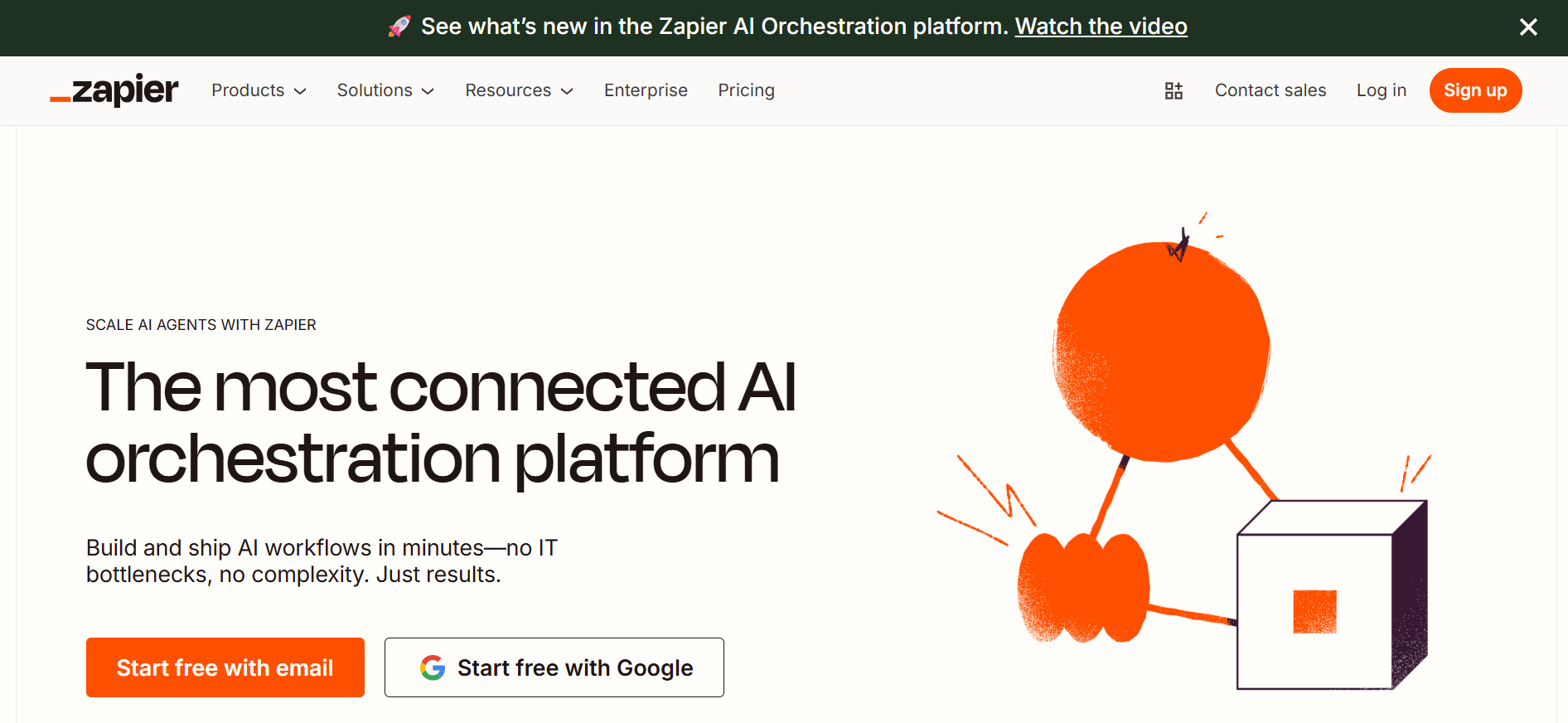
Zapier connects over 7,000 apps, transforming individual tools into a unified marketing machine. This automation platform helps eliminate manual data entry, prevents human errors, and surfaces more insights from your marketing data. Marketers using Zapier can automate everything from lead capture to campaign reporting, with 66% of knowledge workers reporting that automation allows them to focus on more creative tasks.
- Grammarly – for editing and clarity
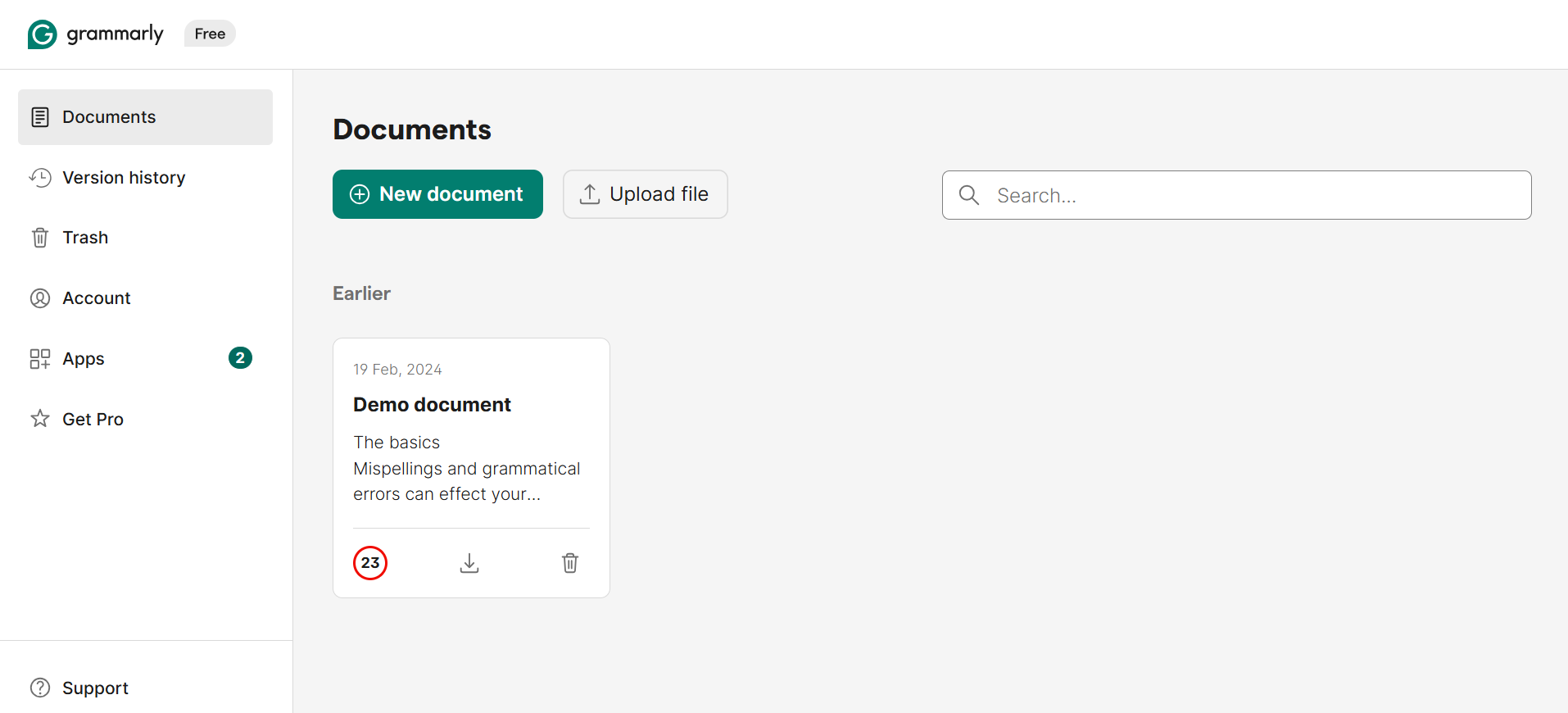
Grammarly goes beyond basic spell-checking to improve your writing’s clarity, engagement, and delivery. Its AI-powered suggestions help you find the perfect words and tone for any audience. Organizations deploying Grammarly save an average of $5,000 per employee annually, with users experiencing 50% fewer writing and editing hours.
- Notion AI – for productivity and planning
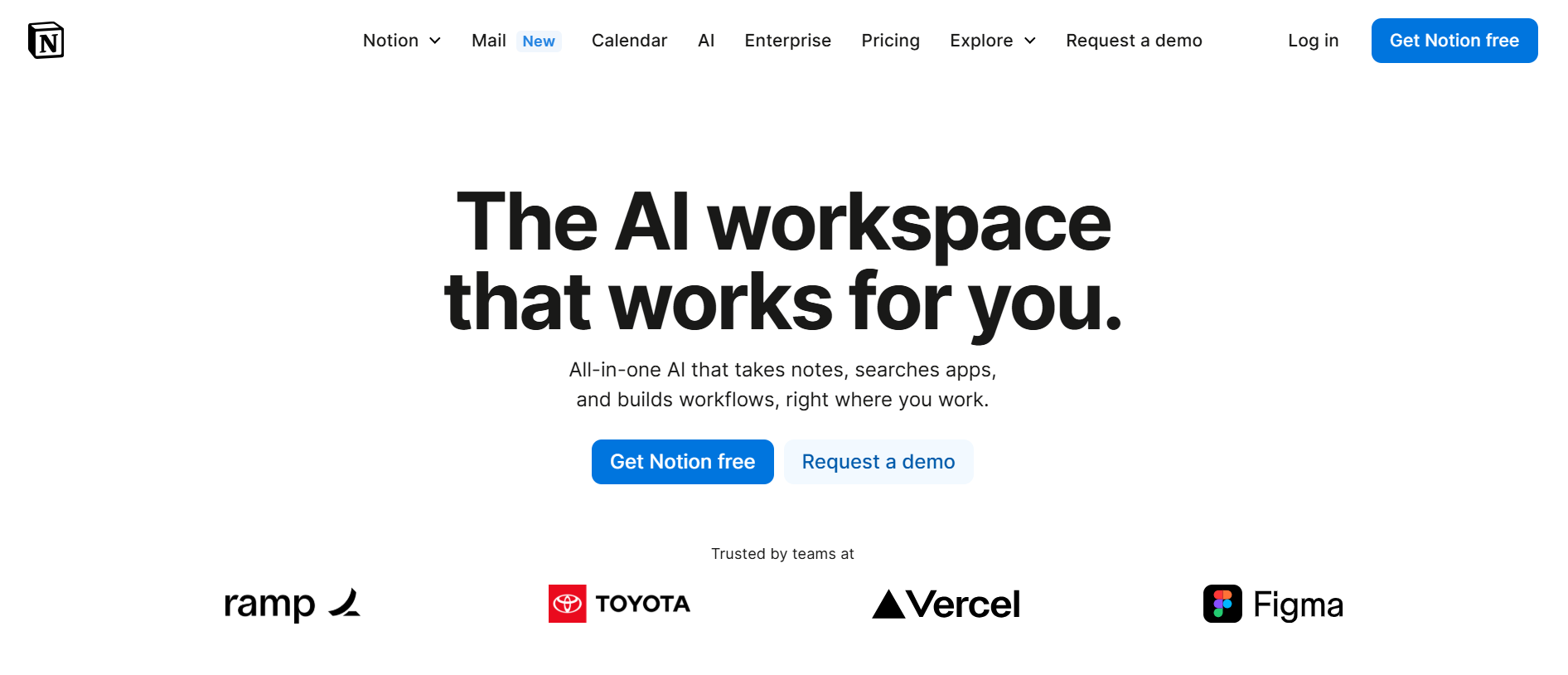
Notion AI serves as your creative partner for marketing planning and content organization. It helps you draft content, generate ideas, optimize writing, translate text, and summarize information. Marketing teams can use it to create briefs, outlines, and social media content in a fraction of the time typically required, letting them focus on strategic thinking rather than administrative tasks.
- Brand24 – for media monitoring
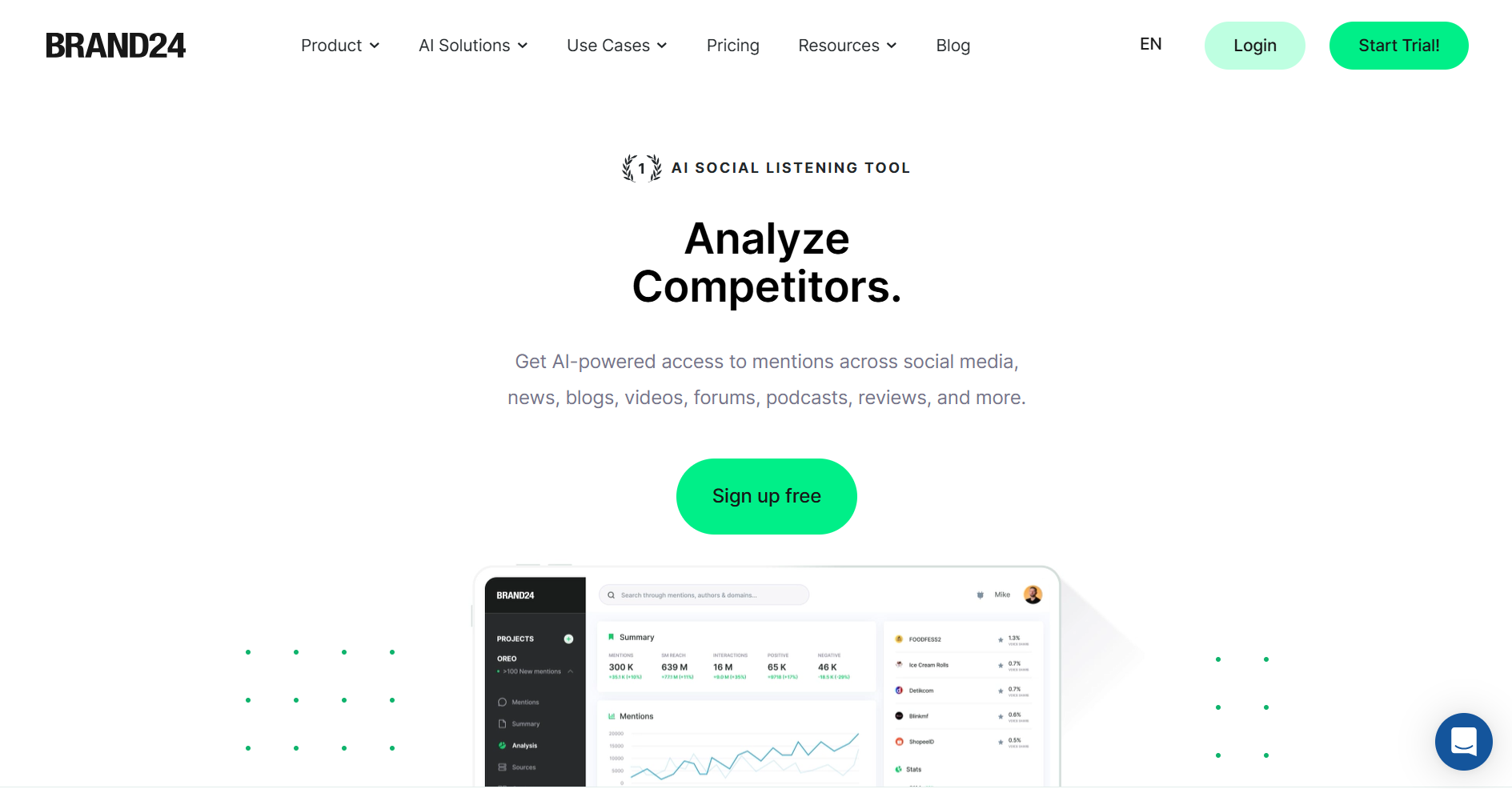
Brand24 provides AI-powered access to mentions across social media, news, blogs, videos, forums, podcasts, and reviews. Its sentiment analysis segments positive, negative, or neutral mentions, helping you track brand awareness and respond quickly to emerging issues. The platform monitors over 25 million active domains and has delivered over 25 billion mentions to date.
- Chatfuel – for chatbot automation
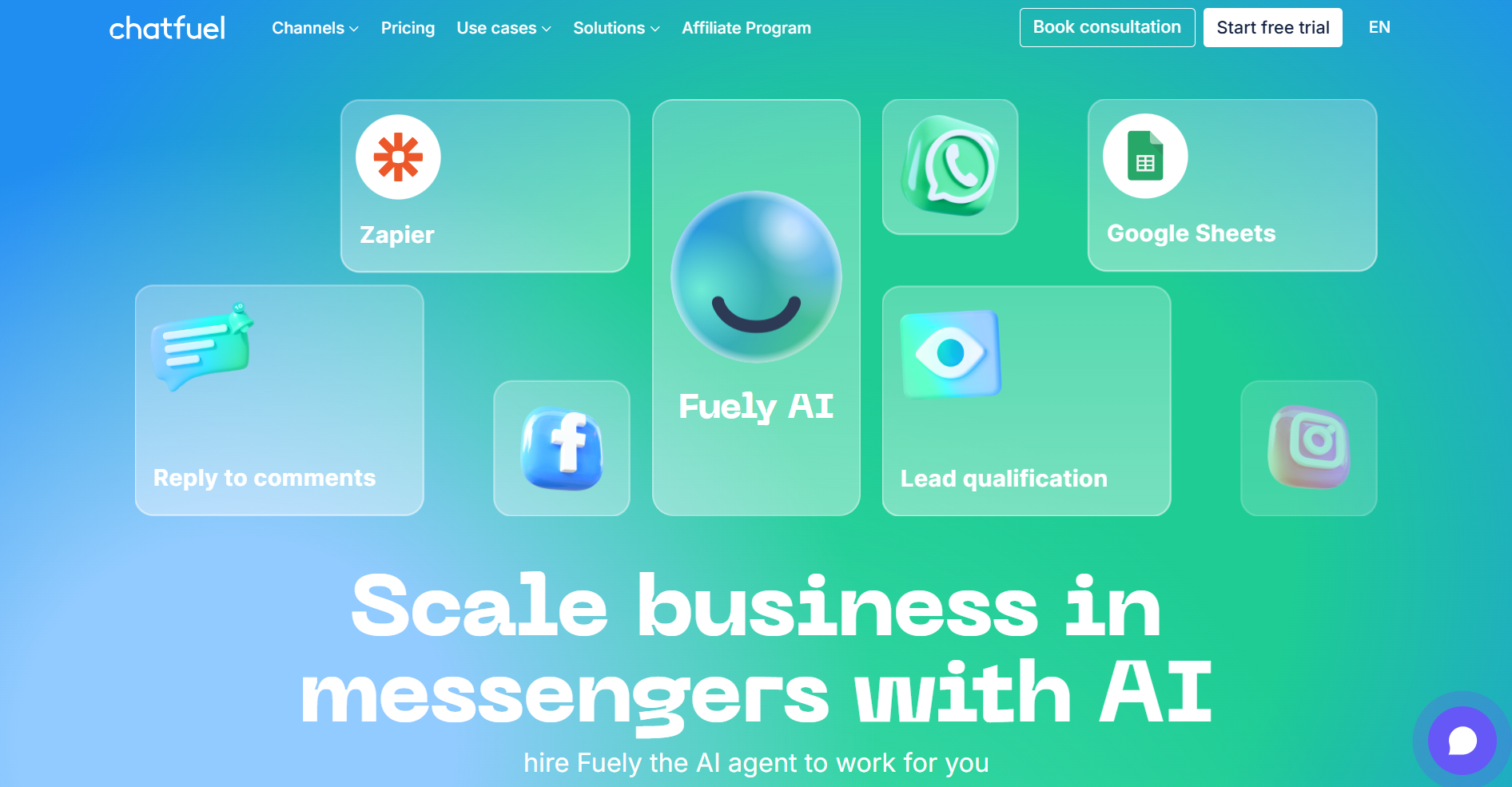
Chatfuel enables you to create AI-powered chatbots for WhatsApp, Facebook Messenger, Instagram, and websites without coding knowledge. These bots can automate 98% of customer requests, handling tasks like lead qualification, appointment bookings, and product recommendations. Chatfuel’s AI agents work 24/7, helping businesses reduce operational costs while increasing customer engagement.
- Crayo – for short-form video creation
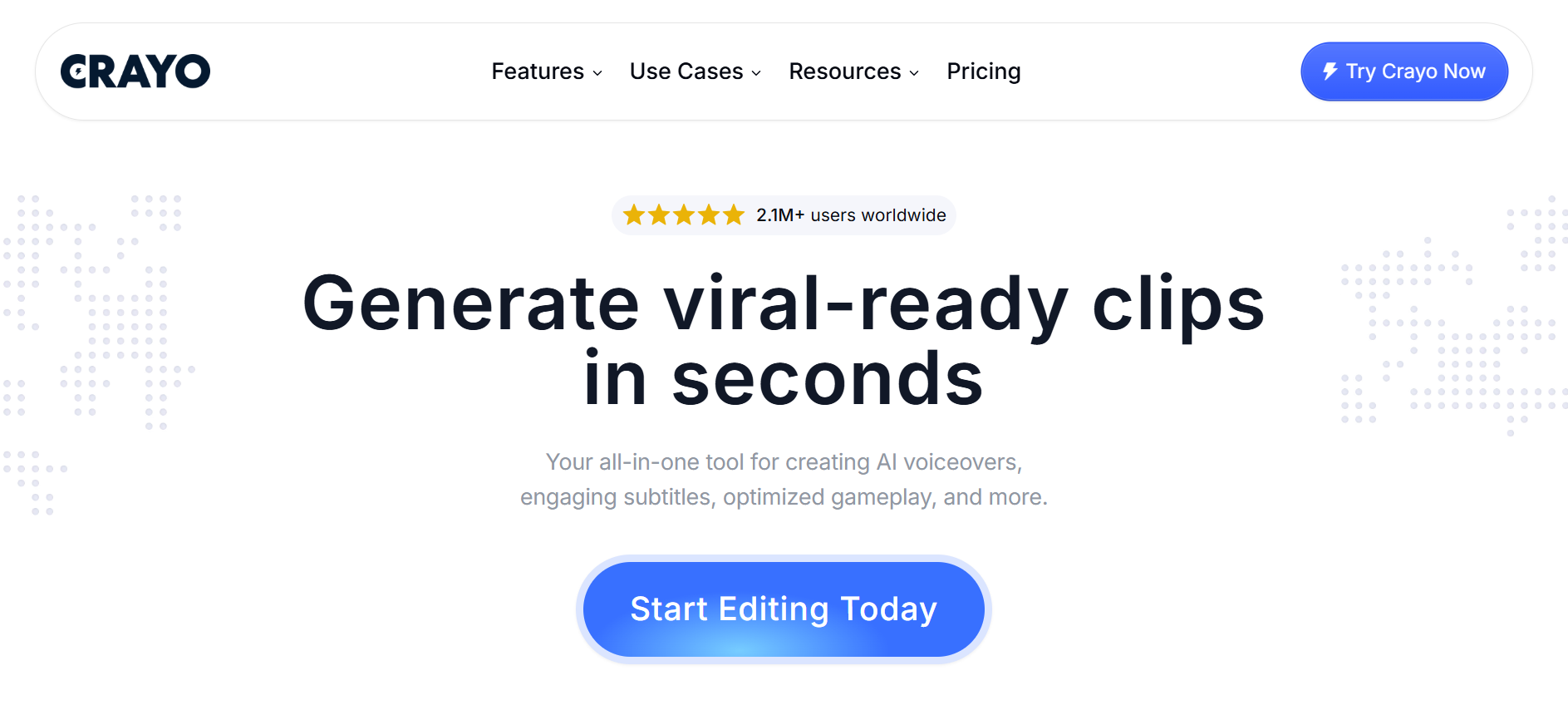
Crayo streamlines short-form video creation with its AI-powered clip creator tool. In just three steps—writing an outline, customizing the style, and exporting—you can create viral-ready videos. The platform auto-generates captions, effects, backgrounds, and music, eliminating the need to manually stitch clips or create subtitles.
How to choose the right AI tools for your needs
Selecting the ideal AI marketing tools requires a methodical approach that considers your specific needs and challenges. Indeed, with the number of martech solutions growing by more than 100x since 2011, finding the right fit is more crucial than ever.
Define your marketing goals
First and foremost, clarify what you’re trying to accomplish. Ask yourself: “Does this tool solve a clear pain point in my workflow?”. Focus on AI tools that directly address your specific marketing challenges rather than chasing the latest technology trend. Whether you’re aiming to boost sales, enhance brand awareness, or deepen customer loyalty, your objectives should form the foundation of your selection process.
Identify your biggest time drains
SMBs report their most time-consuming marketing tasks include content creation, strategy planning, performance measurement, social media posting, and data management. By identifying where you’re losing the most hours, you can prioritize tools that deliver the greatest time savings. For many teams, business process automation has become a preferred option for minimizing these manual inputs.
Match tools to specific tasks
Different marketing functions require specialized AI capabilities. Content marketers should evaluate AI tools for their time-saving features while maintaining the balance between automation efficiency and human creativity. Similarly, growth marketers might focus on AI-powered lead generation tools that enhance personalization through buyer behavior data.
Check integration with your current stack
Nearly 43% of respondents report AI tools integrate well with only minor challenges in their existing martech stack. Nevertheless, integration capabilities are essential—look for tools with robust APIs that enable seamless data sharing across platforms. Remember this rule: “No API = No deal”.
Test usability and learning curve
Essentially, the best AI tools are ones that make your team perform faster and more strategically. Many AI marketing solutions offer free trials or monthly contracts, making it easier to test before investing heavily. Start with small, standalone proof-of-concepts to evaluate real-world fit without enterprise-level risk.
Best practices for using AI in marketing effectively
Successfully implementing AI marketing tools requires more than just purchasing the right software. Implementing AI effectively requires strategic planning and ongoing management to maximize your investment.
Train your team on AI tools
Inadequate training is a significant barrier to successful marketing automation, with 31% of businesses identifying it as a major issue. Organizations that equip their marketing leaders with AI skills gain a substantial competitive edge. Consider implementing role-specific training sessions tailored to each team member’s responsibilities. Additionally, involve representatives from your software provider to conduct training, as they offer in-depth knowledge and best practices. Subsequently, adopt a multi-step approach including initial training, follow-up sessions, and ongoing support to reinforce learning.
Monitor tool performance regularly
Automation isn’t a “set it and forget it” solution. Businesses that neglect evaluating automation regularly face negative consequences. Continuously track campaign effectiveness in real-time through metrics like click-through rates, lead conversions, and customer retention. First, designate specific team members responsible for updating automations and evaluating their performance. Second, schedule regular automation evaluations to ensure systems are working properly and remain effective.
Avoid over-automation
While AI streamlines processes, over-automation risks losing the human touch in marketing. Document everything you do to identify inefficiencies and redundancies. For each automation, develop a well-defined plan detailing its purpose and how it preserves the task’s effectiveness. Moreover, maintain a running list of tasks you’d like to automate alongside potential software solutions, ensuring you’re using the right tools for the right jobs.
Ensure data privacy and compliance
Compliance with privacy regulations like GDPR, CCPA, and CAN-SPAM is vital—overlooking these can result in severe penalties. Organizations must implement comprehensive AI compliance strategies including risk assessment, policy development, monitoring, and employee training. Importantly, obtain explicit consent from contacts before sending marketing communications, provide clear opt-out options, maintain accurate consent records, and respect privacy preferences. Finally, conduct regular compliance audits and appoint a dedicated Data Protection Officer to interpret emerging laws.
Conclusion
The transformation of marketing through artificial intelligence tools continues to accelerate as we move further into 2025. Throughout this article, I’ve shown how AI marketing tools can save you 10+ hours weekly by automating repetitive tasks, streamlining content creation, and enhancing data-driven decision making.
AI adoption no longer represents a competitive advantage—it has become a necessity for staying relevant. Marketers who embrace these tools gain back valuable time previously lost to manual processes. This reclaimed time allows teams to focus on strategic thinking and creative initiatives that truly drive business growth.
The nine tools highlighted offer solutions across various marketing functions, from MolyPix.AI and Jasper AI for content creation to Brand24 for media monitoring. Each addresses specific pain points while delivering substantial efficiency gains. However, selecting the right tools requires careful consideration of your marketing goals, current workflows, and integration capabilities.
Undoubtedly, successful AI implementation demands more than just purchasing software. Proper team training, regular performance monitoring, and thoughtful application prevent over-automation while maximizing returns. Additionally, maintaining data privacy compliance safeguards your organization against regulatory issues.
AI marketing tools present an opportunity to work smarter rather than harder. Their ability to handle mundane tasks, generate insights from complex data, and scale personalized experiences makes them invaluable allies for modern marketers. Start small, identify your biggest time drains, and gradually build an AI-powered workflow that saves you those precious 10+ hours weekly. The future of marketing awaits—will you embrace it?
FAQs
Q1. How can AI marketing tools save time for marketers? AI marketing tools automate repetitive tasks, speed up content creation, and improve data-driven decision-making. They can handle routine operations like campaign reporting and performance monitoring in minutes, generate high-quality content drafts quickly, and process vast amounts of data to identify patterns and trends, saving marketers 10+ hours weekly.
Q2. What are some of the best AI marketing tools available? Some of the best AI marketing tools include MolyPix.AI for quick and stunning designs, Jasper AI for content writing, Surfer SEO for content optimization, Zapier for workflow automation, Grammarly for editing, Notion AI for productivity and planning, Brand24 for media monitoring, Chatfuel for chatbot automation, and Crayo for short-form video creation.
Q3. How do I choose the right AI marketing tools for my needs? To choose the right AI marketing tools, define your specific marketing goals, identify your biggest time drains, match tools to specific tasks, check integration capabilities with your current tech stack, and test the usability and learning curve of potential tools. It’s also beneficial to start with small proof-of-concepts before making larger investments.
Q4. What are some best practices for using AI in marketing effectively? Effective use of AI in marketing involves properly training your team on the tools, regularly monitoring tool performance, avoiding over-automation to maintain a human touch, and ensuring data privacy and compliance with regulations. It’s also important to continuously evaluate and update your AI strategies to maximize their effectiveness.
Q5. How is AI changing the marketing landscape in 2025? AI is revolutionizing marketing by enabling more personalized customer experiences, improving targeting and ROI, reducing handling time for customer inquiries, and enhancing productivity across marketing workflows. It’s evolving beyond simple applications to intelligent systems that can automate entire marketing journeys, making it essential for marketers to adopt AI tools to stay competitive.

